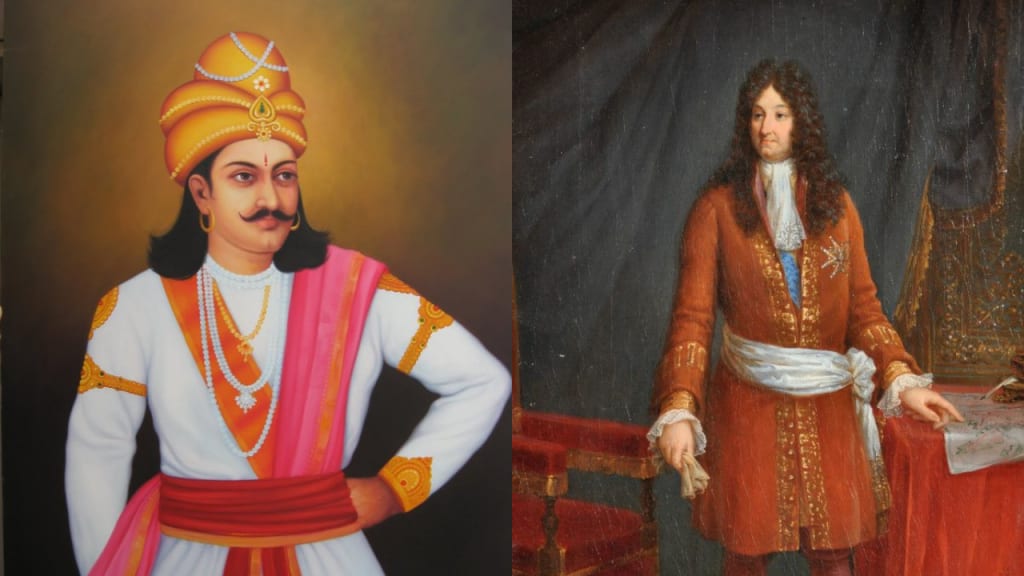World's Top 10 Greatest Emperors
The top 10 Super-Kings

With great power comes great responsibility
Great Emperors have reigned over the world, as have horrible pioneers. There have been despots and benign monarchs throughout history. This article is about the greatest and most generous rulers/emperors in history, rulers who made life better for their subjects.
10. Suleiman I of the Ottoman Empire
Suleiman I, otherwise called Suleiman the Magnificent, ruled as Sultan of the Ottoman Empire for a considerable length of time, longer than some other Sultan. His rule denoted the start of the brilliant age of the Ottoman Empire. During his standard, the Ottoman Empire included the greater part of the Middle East, Southeastern Europe and Rhodes. Suleiman additionally made instructive, administrative, tax assessment and criminal changes.
9. James I of England
James I, otherwise called "the most astute nitwit in Christendom", was the clench hand lord of both England and Scotland. Subject to his authority, the two realms were joined together. Writing and the expressive arts thrived under his rule, he, at the end of the day, composed many books and sonnets. During his standard, worldwide exchange through the British East India Company expanded significantly
8. Meiji of Japan
At the point when Meiji became Emperor of Japan at 14 years old, Japan was a crude and confined country. Before the end of his rule, Japan was a modern force to be reckoned with. Meiji was a central member in making Japan a significant world superpower.
7. Gustav II Adolf of Sweden
Gustav II Adolf, otherwise called Gustavus Adolphus, was the King of Sweden for a long time. During his rule, Sweden turned into a significant European power. Gustav II Adolf drove his Protestant armed force against the Catholic multitudes of France and Spain. Later his passing in the fight, Sweden became known as a tactical force to be reckoned with.
6. Augustus of Rome
Augustus Caesar was governed as the Emperor of Rome for a considerable length of time. During this time, Augustus worked on the framework and military of Rome. He likewise changed the tax assessment process. His rule is known as Pax Romana, or Roman Peace because during his rule tact thrived.
5. Cyrus II of Persia
Cyrus II, otherwise called Cyrus the Great, managed Persia for a very long time. During his rule, the Persian Empire enveloped a large part of the Middle East, including Iran, Israel and Mesopotamia. Under Cyrus' rule, basic freedoms and military techniques were incredibly improved.
4. Frederick II of Prussia
Frederick II, otherwise called Frederick the Great, managed Prussia for a very long time. During his rule, the lines of Prussia extended to envelop West Prussia and Silesia. Under his rule, the foundation, military and administrative course of Prussia was enormously improved
3. Victoria of the United Kingdom
Sovereign Victoria was the leader of the United Kingdom for a considerable length of time, longer than some other British rulers. During her rule, the British Empire extended to incorporate one-fourth of the land on the Earth, making it the biggest domain of all time. The United Kingdom prospered under her rule, with the Industrial Revolution occurring. Victoria loaned her name to the Victorian Era when the United Kingdom's power was at its pinnacle.
2. Ashoka the Great of India
Ashoka also known as Ashoka the Great, was an Indian emperor of the Maurya Dynasty.
Ashoka's reaction to fighting and the awfulness of Kalinga was the motivation for the definition of the idea of dhamma. Dhamma gets from the idea, initially put somewhere near Hinduism, of dharma (obligation) which is one's obligation or reason throughout everyday life except, all the more straightforwardly, from Buddha's utilization of dharma as infinite law and that which ought to be regarded. Ashoka's dhamma incorporates this arrangement yet grows it to mean general altruism and advantage to all as "right conduct" which advances harmony and comprehension. Keay takes note that the idea is compared with "benevolence, a noble cause, honesty, and immaculateness". It is likewise perceived to signify "acceptable conduct" or "fair conduct".
Later he had accepted Buddhism, Ashoka left on journeys to locales consecrated to Buddha and started to scatter his considerations on dhamma. He requested proclamations, many referring to dhamma or clarifying the idea completely, engraved in stone all through his realm and sent Buddhist ministers to different districts and countries including advanced Sri Lanka, China, Thailand, and Greece; in this manner, he set up Buddhism as a significant world religion. These ministers spread Buddha's vision calmly since, as the emperor Ashoka had proclaimed, nobody ought to lift their religion over any other individual's; to do such downgraded one's confidence by assuming it to be superior to another's thus losing the modesty important in moving toward hallowed subjects.
1. Louis XIV of France
Louis XIV, also known as Louis the Great or the Sun King, was King of France from 14 May 1643 until he died in 1715. His reign of 72 years and 110 days is the longest recorded of any monarch of a sovereign country in history.
Louis XIV, Under his rule, France turned into the most remarkable country in Europe. Louis finished feudalism in France and modernized the country. During his standard, the military and expressive arts prospered. Louis accepted unequivocally the heavenly right of rulers, saying that he was the sun and that his squires and France ought to spin around him like planets. Louis XIV's France was emblematic of the age of absolutism in Europe.
About the Creator
S Rajesh Kumar
Greetings,
I am a Freelancer. A UFO(Divine-Craft) summoner & researcher.
I love to read and write Stories/Articles.
My Fav Genres: Sci-Fi, Mystery/Thriller/Suspense
Hope that you like my stories/articles. Keep visiting.
Thanks a lot
God Bless






Comments
There are no comments for this story
Be the first to respond and start the conversation.